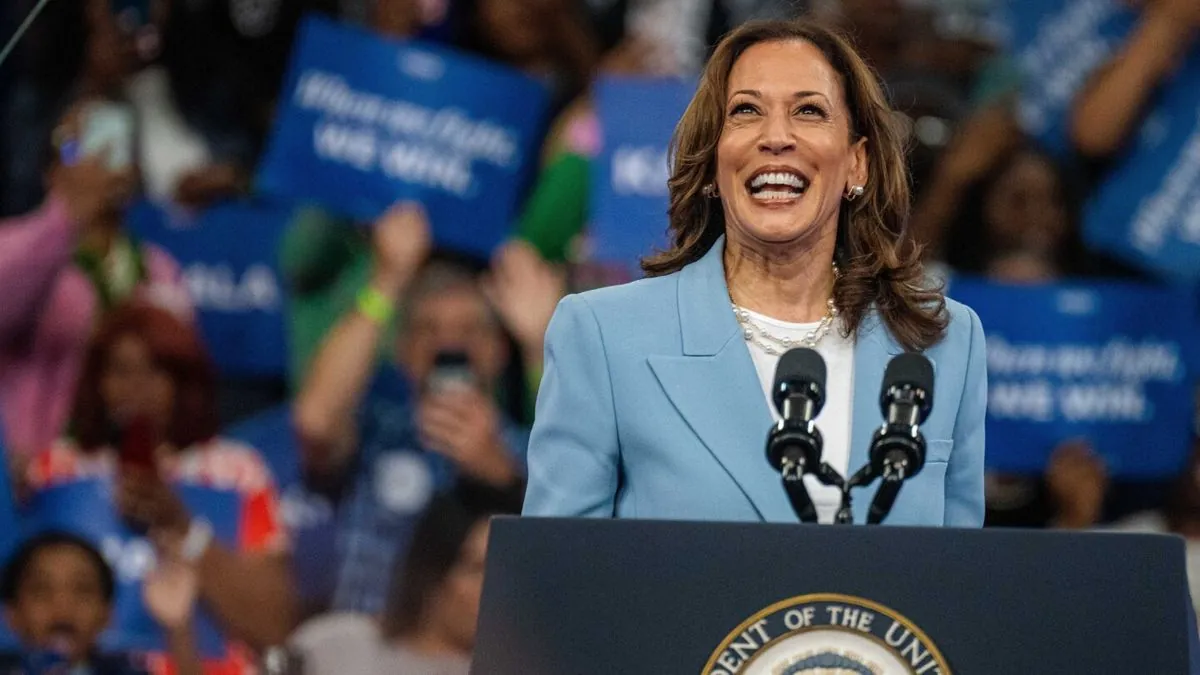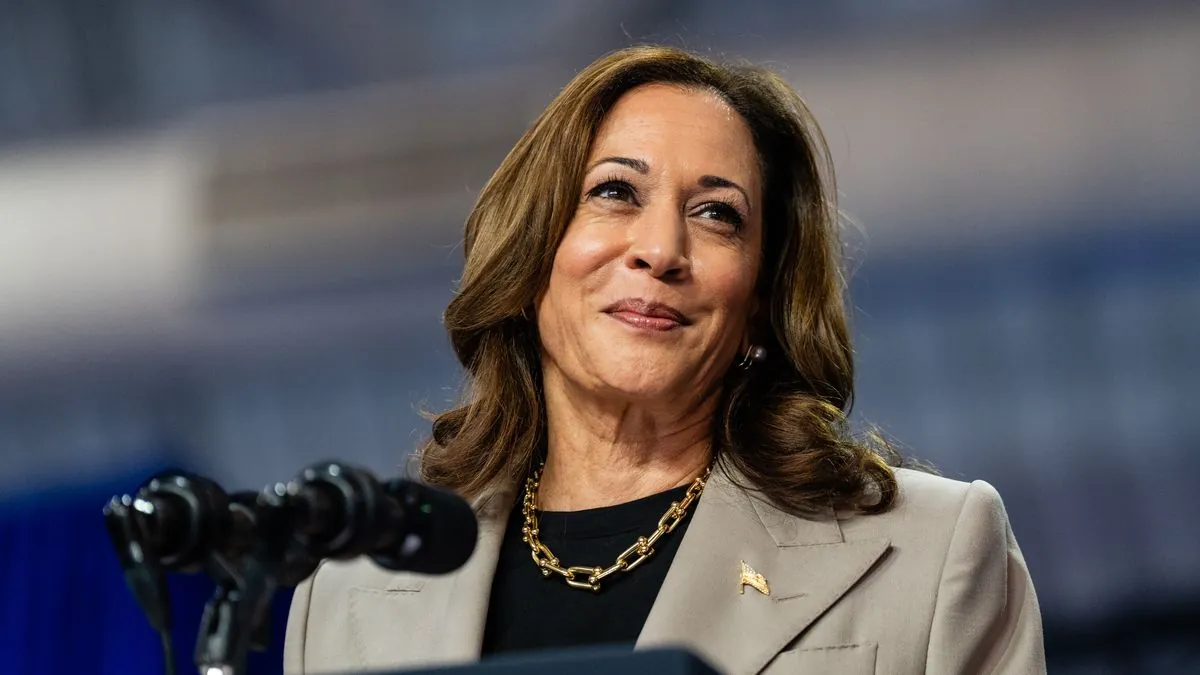Harris Campaign Unveils $370 Million Ad Strategy for 2024 Election
Vice President Kamala Harris' campaign announces a substantial $370 million advertising plan for the upcoming election, focusing on battleground states and digital platforms. The strategy aims to reach diverse voter demographics.

Vice President Kamala Harris' campaign has unveiled an extensive advertising strategy for the upcoming 2024 U.S. presidential election. The campaign plans to allocate $370 million for advertising between Labor Day and Election Day, demonstrating a significant financial commitment to their electoral efforts.
The advertising push includes a $170 million television reservation spanning nine weeks, commencing on September 3, 2024. This television campaign will target key battleground states, which historically play a crucial role in determining the outcome of U.S. presidential elections. Additionally, the campaign has earmarked over $200 million for digital advertising on platforms such as Hulu, Roku, and YouTube.
It's worth noting that this budget does not encompass expenditures on social media or search engine advertising, suggesting the total advertising spend could be even higher. The campaign's strategy reflects the growing importance of digital platforms in political outreach, a trend that has been accelerating in recent election cycles.

The Harris campaign's approach includes targeting high-viewership moments, such as major sporting events and television season premieres. Interestingly, they also plan to air advertisements during daytime programming on Fox News Channel, aiming to reach conservative-leaning independents who may have supported former GOP presidential candidate Nikki Haley during the Republican primary.
In contrast, former President Donald Trump's campaign has made more limited ad reservations for the post-Labor Day period, focusing only on Pennsylvania and Georgia, according to data from media tracking firm AdImpact.
The substantial early ad reservations by the Harris campaign serve a dual purpose: securing airtime and potentially locking in lower rates before prices increase as the election draws nearer. This strategy aligns with the increasing sophistication of political campaign advertising in the United States.
"The television ads we're reserving include spots around high-viewership moments such as major sporting events and season premieres."
It's important to contextualize this advertising push within the broader landscape of U.S. elections. Kamala Harris, as the first female, African American, and Asian American vice president, represents a historic milestone in American politics. The upcoming election will determine whether she and her running mate can secure a second term in office.
The focus on battleground states underscores the significance of the Electoral College system in U.S. presidential elections. These swing states often decide the outcome, even if they don't align with the national popular vote. This reality shapes campaign strategies and resource allocation.
Digital advertising's prominence in the Harris campaign's plan reflects the evolving nature of political outreach. Campaigns now employ sophisticated micro-targeting techniques to reach specific voter demographics, leveraging the vast data available through digital platforms.
As the election approaches, voters can expect to see an increase in political advertising across various media. However, it's crucial to remember that advertising is just one aspect of a campaign. Factors such as debate performances, policy proposals, and unforeseen events can all influence the election's outcome.
With voter turnout in U.S. presidential elections typically ranging from 50% to 60% of eligible voters, campaigns are likely to focus not only on persuasion but also on mobilization efforts. The increasing popularity of early voting and mail-in ballots may also influence campaign strategies in the coming months.
As we approach the 2024 election, it's clear that both major campaigns are gearing up for an intense and high-stakes contest. The Harris campaign's substantial advertising investment signals their determination to reach and persuade voters across multiple platforms and demographics.


































